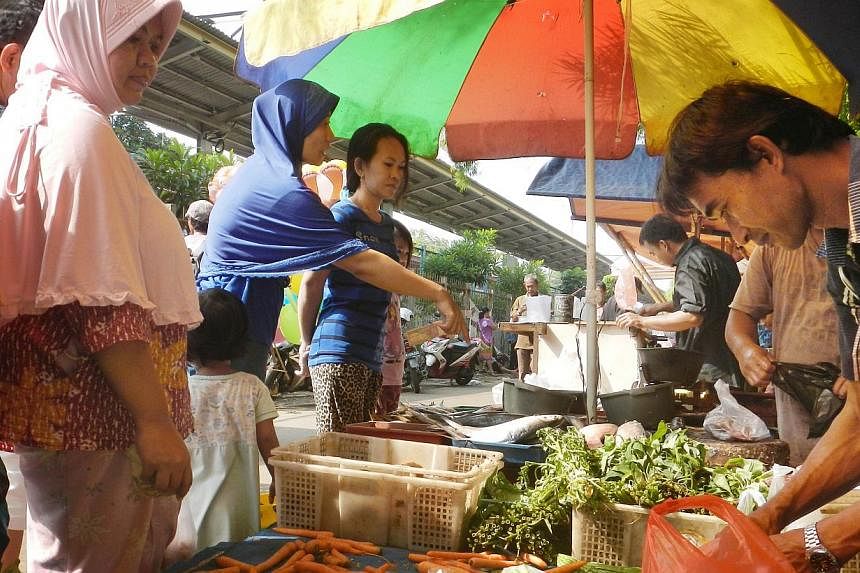JAKARTA (Reuters) - Indonesia is taking coordinated steps to revive the worst domestic slowdown since 2009, with the finance ministry promising to speed up infrastructure spending and the central bank preparing a mixture of monetary policy changes.
The economic offensive comes a day after data showed Southeast Asia's largest economy grew at a slower-than-expected pace of 4.71 per cent in the January-March quarter from a year earlier. The slowdown was mainly due to a collapse in commodities and weak government spending.
"BI will coordinate with the government and BI will respond in the form of a policy mix," Bank Indonesia governor Agus Martowardojo told reporters after meeting with the president and finance minister.
"In the policy mix, the main things are policy on exchange rate, interest rate, reserves, macro-prudential, communication, coordination between central banks and coordination with the government."
A central bank spokesman said it would not decide on its interest rate policy until the scheduled May 19 monetary policy meeting.
After the meeting, Finance Minister Bambang Brodjonegoro said the government would do its part by accelerating infrastructure spending.
As of April 25, the government has spent only 7 trillion rupiah, or 2 per cent, of its 290 trillion rupiah budget set aside for infrastructure spending.
President Joko Widodo is expected to hold another meeting with his economic team later on Wednesday. Officials said the multiple meetings were not unusual as the president often calls on cabinet ministers to discuss issues of the day.
Widodo, who came to power six months ago with high hopes and a promise to beef up the country's creaking infrastructure, has been hamstrung by rifts inside his own political party and squabbles between government agencies.
While Widodo has slashed fuel subsidies and freed up billions of dollars for long-neglected capital spending, many infrastructure projects are tied up in red tape.

